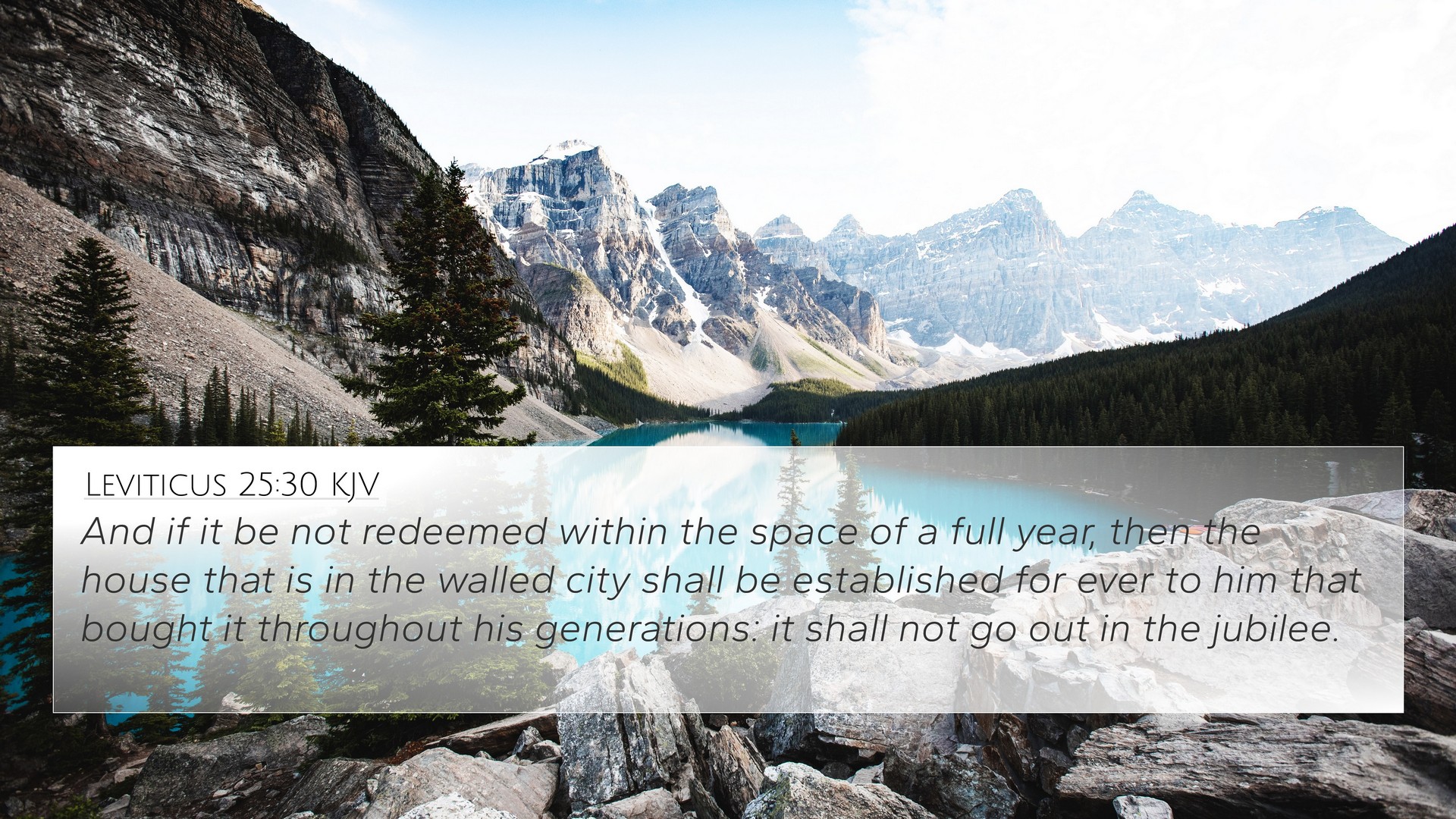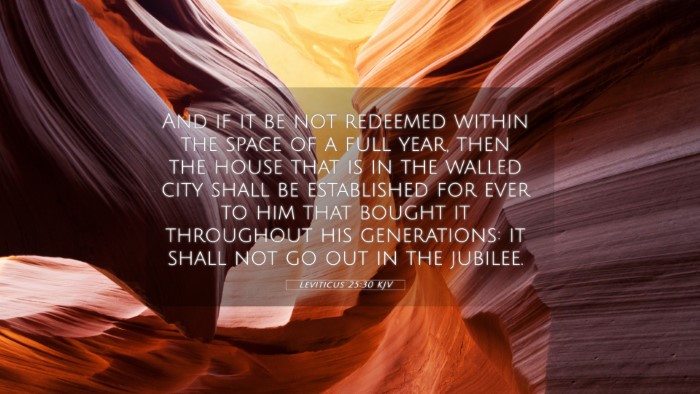Understanding Leviticus 25:30
Leviticus 25:30 states, "And if it be not redeemed within the space of a full year, then the house that is in the
walled city shall be established forever to him that bought it throughout his generations: it shall not go out
in the jubile." This verse addresses the significance of property and its redemption within the context of
the Israelite laws concerning land ownership and familial inheritance.
Key Themes and Insights
-
Redemption of Property: The verse highlights the importance of redemption, emphasizing that property
could be redeemed within a designated timeframe. This reflects the overarching principle of restoration found in the
biblical law.
-
Eternality of Ownership: The house within a walled city, if not redeemed within a year, becomes the
permanent possession of the buyer. This illustrates how certain possessions are established under the legal framework
of ancient Israel.
-
Generational Heritage: The mention of the property being established 'throughout his generations'
indicates the significance of inheritance and how land is passed down, preserving family identity and legacy.
Commentary Insights
Matthew Henry's Commentary
Matthew Henry notes that this ordinance was designed to prevent the long-term loss of property from families.
He explains that the laws surrounding redeeming property were a safeguard against the perpetual loss of inheritance,
ensuring that families were not permanently deprived of their heritage. He also reflects on the nature of God's
redemption that provides a parallel to humans being redeemed through Christ.
Albert Barnes' Commentary
Albert Barnes provides insight into the cultural and social implications of property laws in Israel. He emphasizes
that the walled cities had a different set of rules compared to rural properties, and this verse distinguishes
the permanent versus temporary ownership in a societal context. Barnes also relates this to God’s promises, suggesting
that just as property can be secured, the promises of God are everlasting.
Adam Clarke's Commentary
Adam Clarke expounds on the significance of the Jubilee year as a time of restoration and return of possessions to
their original families. He points out that not redeeming a house within the year would mean that it forfeits
the ability to return to the original owner, reinforcing the importance of timely action in the economic practices of
the Israelites.
Biblical Cross-References
Understanding Leviticus 25:30 is enriched by connecting it with several other scriptures that deal with the themes
of inheritance, redemption, and property laws. Below are cross-references that elaborate on these themes:
- Exodus 21:2-6 - Discusses the sanctity of servant freedom and the transfer of property.
- Numbers 36:7-9 - Deals with the preservation of land within the tribes of Israel.
- Leviticus 25:10 - Proclaims liberty during the Jubilee year, echoing themes of restoration.
- Deuteronomy 15:1-2 - Discusses the year of release, relating to financial obligations and property ownership.
- Ruth 4:3-4 - Discusses the concept of redemption in the context of familial inheritance.
- Matthew 5:5 - "Blessed are the meek, for they shall inherit the earth," tying into ownership and inheritance.
- Ephesians 1:14 - Discusses the redemption as an inheritance for believers, paralleling the concept of property redemption.
Thematic Connections
Leviticus 25:30 resonates with broader biblical themes concerning redemption, familial identity, and divine provision.
Connecting this scripture with others provides a deeper understanding of God’s law and its application in believers' lives today.
Conclusion
The laws provided in Leviticus regarding property and inheritance reflect not only cultural practices but also deeper
spiritual truths. The redemptive properties of land ownership and restoration echo the ultimate redemption found in Christ.
By studying this verse in conjunction with cross-references, one can gain a holistic view of biblical inheritance and
how it relates to our spiritual journey today.


